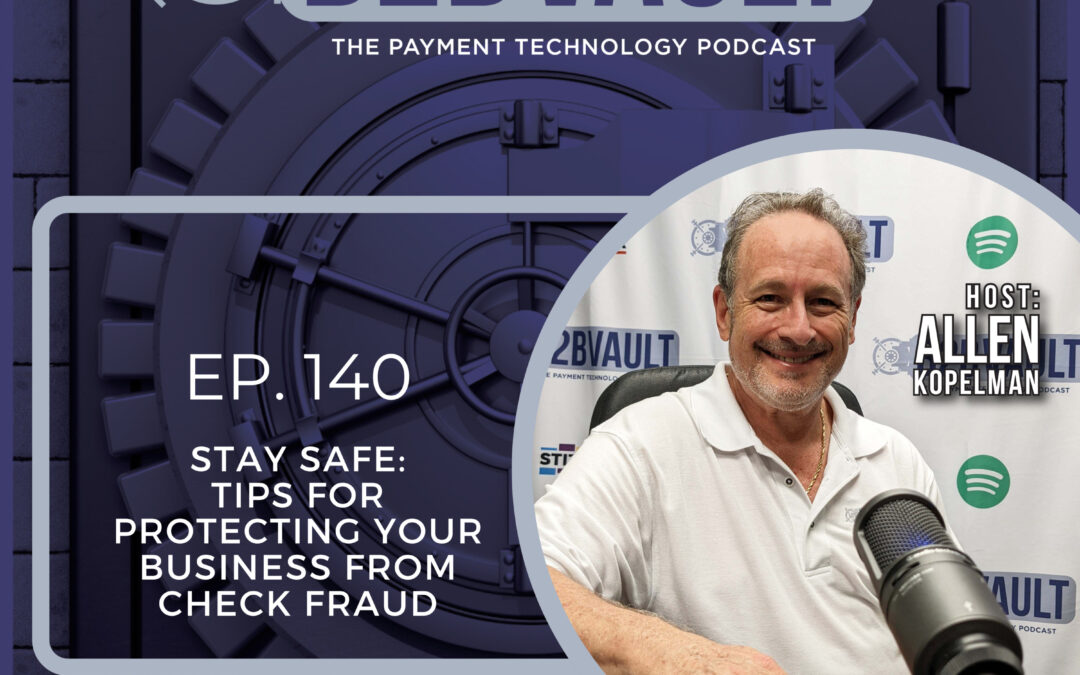In this episode of B2B Vault: The Payment Technology Podcast, we dive into the world of check fraud and its impact on businesses. Join us as we discuss the latest techniques used by scammers, the warning signs to look out for, and the best practices for avoiding check fraud. Whether you’re a business owner or a payment professional, this episode is a must-listen for anyone looking to protect their organization from financial loss. Tune in and arm yourself with the knowledge to stay ahead of the game in the fight against check fraud.
The world of check fraud is constantly evolving, and it can be difficult for businesses to keep up with the latest tactics used by scammers. However, by staying informed and educated, businesses can better protect themselves against these types of crimes. In this episode, we will be discussing the latest trends and techniques used by scammers, as well as the warning signs that businesses need to be aware of.
Fraud is a growing problem, affecting individuals and businesses alike. In this article, we will discuss several types of fraud and how to protect yourself and your business from being a victim.
Business Fraud
Businesses are often targeted by fraudsters who try to rip them off through fake purchases, shipping scams, and fake loan services. To protect your business, you should always be wary of large purchases, shipments to P.O. boxes or UPS stores, and cards with damaged chips.
To avoid chargebacks, never key in a card where the chip is not working, and always be on the lookout for scams that promise to get you money from the government. Stay informed about the latest scams and be sure to double-check any offers that seem too good to be true.
Personal Fraud
Personal fraud can take many forms, from fake emails and phone calls to scams through instant messenger and pay apps like Zelle and Cash App. One of the biggest scams currently affecting individuals is the massive lawsuit involving Zelle and some banks.
Other common personal frauds include fake emergency situations like a relative in trouble, the IRS, or a fake Amazon purchase, as well as texts asking for payment for a rental or mortgage.
How to Protect Yourself
To protect yourself from personal fraud, it’s important to be vigilant and never share your account information, such as your PIN, passwords, social security number, or credit card numbers, with anyone. If you ever receive a call or text that you question, hang up and call the actual company directly, or simply do nothing.
Only send money to friends, family, and others that you know and trust, and always be cautious when receiving requests for transfers or payments. Stay informed about the latest scams and frauds, and be sure to keep your personal information secure.
In conclusion, fraud is a growing problem that affects everyone. By being informed and vigilant, you can protect yourself and your business from being a victim.

